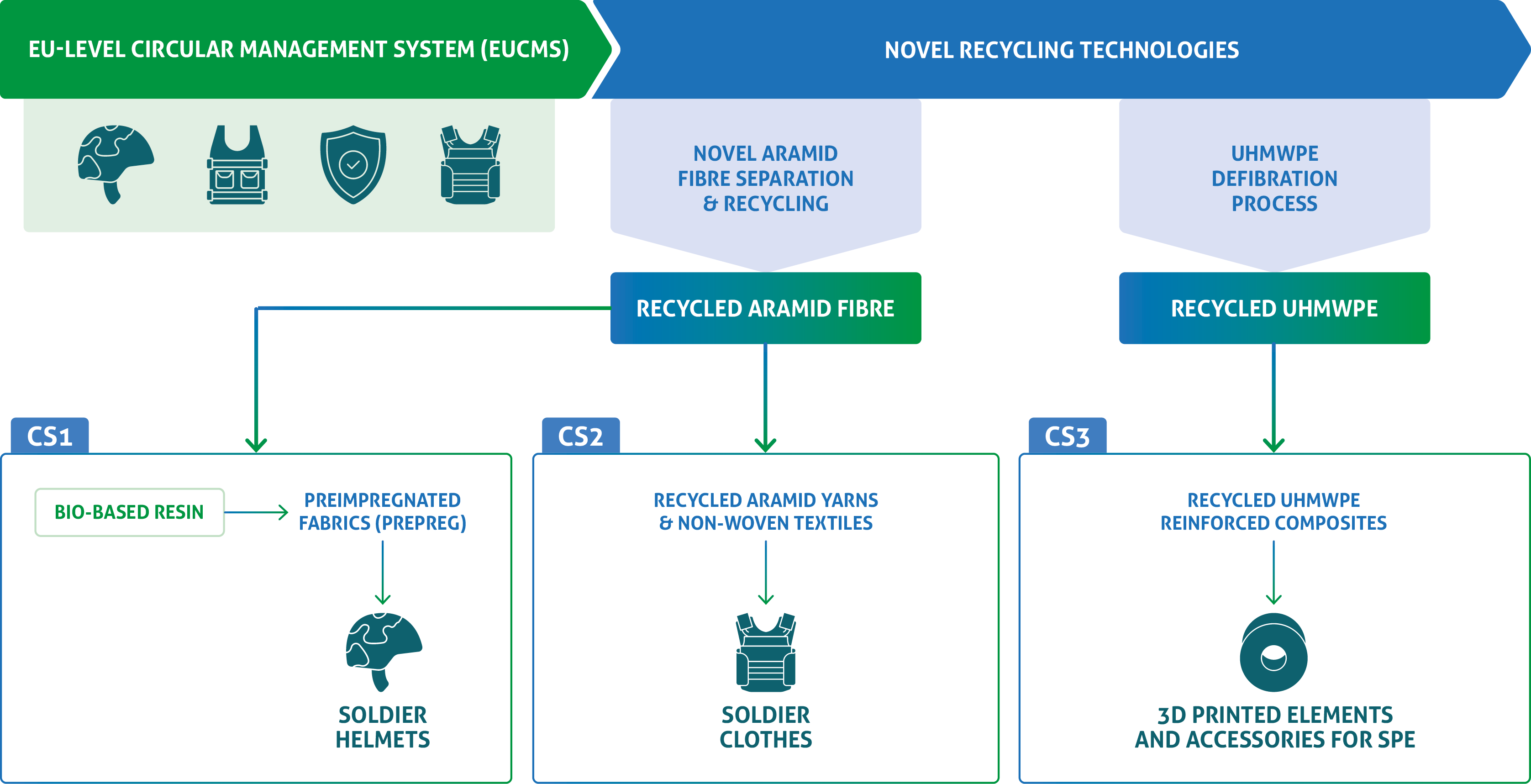In line with the Green Deal objectives, there has been a growing recognition of the need for the European Defense sector to integrate Circular Economy principles into its industry. Embracing the circular economy not only aligns with the environmental goals but also presents a compelling business case for the defense sector to bolster sustainability while maintaining competitiveness within the industry.
However, Circularity and Circular Economy are complex concepts that require a multidisciplinary approach, innovative technologies, systematic methodologies, and scientific evidence to engage stakeholders.
In response to this imperative, UTILE is developing novel approaches, including new materials and recovery/recycling technologies, along with an IT platform, to establish a novel circular model for Soldier Personal Equipment (SPE).
UTILE TECHNOLOGIES
- Bio-based resins for recyclable aramid fibre composites
- Novel aramid fibre carding and spinning processes for recycled yarn production
- Innovative ultra-high molecular weight Polyethylene (UHMWPE) defibration
- Novel UHMWPE containing compounds and composites developed and used in filament production and 3D printing
- Novel prepreg production employing bio-based resin abd recycled aramid fibres
Additionally, UTILE will create a digital platform, the EU-level Circular Management System (EUCMS), integrating AI, blockchain, and cost-benefit analysis to facilitate circularity adoption within the SPE value chain and across broader defense sectors.
The viability of UTILE’s novel materials and technologies will be demonstrated through three case studies, as summarized in the follow figure:
1. Soldier helmets employing recycled aramid fibre /bio-based resin prepreg fabrics (CS1)
2. Soldier personal protection (SPP) clothes employing recycled aramid yarns and non-woven (CS2)
3. Elements/parts/accessories dedicated for soldier personal equipment (SPE), made from composites based on recycled UHMWPE (CS3)
CIRCULARITY OF SOLDIER PERSONAL EQUIPMENT

EXPECTED IMPACTS

Increase the sustainability and competitiveness of the European defense industry

Contribute to the establishment of novel circular value chains

Increase the EDTIB autonomy, resilience, and strategic technological independence


Contribute to the creation of new cross-border cooperation between stakeholders across EU Member States


